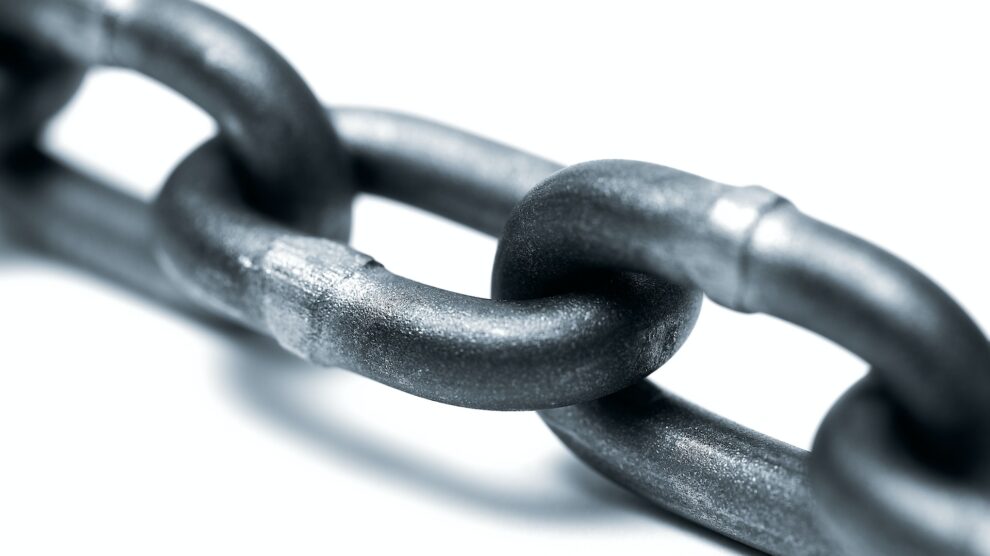Link building is a volatile business that’s ever-changing thanks to Google’s interpretation of the difference between a good link and a bad link.
April 2012 saw the introduction of Google’s Penguin update. The idea was to release an update that held corner-cutting webmasters to account, and it caused masses of websites to plummet into the abyss of low-ranking, low-quality, digital pond-life.
Penguin considered a lot of factors before delivering its crippling penalties, and website owners have had to think on their feet ever since to keep ahead of Google’s wrath.
There are many types of links that have the potential to turn a seemingly good and honest link into a bad one that negatively affects your rankings. We’ve gathered five of the biggest offenders that lure many unsuspecting webmasters. We also thought it would be worth explaining how to keep away from volatile linking too, just because nobody should see their website suffer due to a bad link or two.
1. Pay-Per-Link
Buying yourself some backlinks is definitely an ethical minefield when it comes to strategies for boosting rankings on Google.
It’s well documented that nothing gets the job done quicker than purchasing links and reaping the rewards just minutes later, so why are we discussing it on a list of the most volatile links to utilise?
Well, the problem is that while paid links can work wonders in helping sites jump up the SERPs, Google has made it their mission to eradicate the practice from their results pages – or at least get website owners to list their paid links with a ‘no follow’ tag.
This means that if Google figures out that you’ve been paying for those all important backlinks, you risk incurring a penalty so severe that it will send your site all the way back to the dark ages.
If you’ve paid for links in the past, and don’t particularly enjoy living dangerously, then it’s advisable that you convert said links to ‘no follow’ to prevent the risk of waking up one morning to find that your domain authority has dropped from 50 to 15 on Ahrefs .
2. Irrelevant linking
Quantity is rarely ever equal to quality in the linking world, and websites that utilise links that have minimal to no relevance to the content that they’re referring to are bound to hurt your rankings in the post-Penguin world of SERPs.
Put simply, a website whose primary focus is on stargazing has no business linking to Madrid’s finest tapas restaurants – even if a night of pointing telescopes to the sky does work up an appetite.
Google’s Penguin update looked to get to the bottom of these flimsy links and increase the value of relevant links while devaluing the ones that are deemed irrelevant between websites. The all-encompassing algorithmic behemoth of Google looks to be continuing its pursuit of whittling down these linking cowboys even today, so if you have any ill-fitting links that are currently working in boosting your position through the search engine’s results pages, the chances are this won’t be the case much longer.
To counter this, be sure to run a quality control over your links – if something looks out of place, it’s advisable not to risk it.
3. Over-optimised links
Sometimes SEO can be taken to unsavoury extremes. Links can be over optimised when webmasters manipulate anchor text with empty keywords to get more attention on the SERPs.
Anchors are essentially defined as the text that links to another website, and they can be easily edited to say various things that can help search engines pay attention.
However, once again, Google’s Penguin update was designed to put a stop to this level of manipulation, and now websites with an anchor-rich level of arbitrary keywords will find their rankings floundering as a result.
4. Dead links
When it comes to link building, the term ‘gone but not forgotten’ only applies to the website that’s still embedding links that have stopped working – as far as Google’s concerned, the moment a link gets broken, it’s like it never existed in the first place.
While accumulating dead links won’t incur a penalty when it comes to Google’s algorithms, it certainly won’t help your website to gain any prominence on the SERPs.
Coming across a link that no longer exists is part and parcel of life as a website owner, especially if you’ve been operating for some time.
The best course of action to take in this situation is to regularly monitor your backlinks. There are plenty of websites available that monitor your links for free and highlight any broken ones – saving potentially hours of blood sweat and tears for those who would otherwise do it manually – namely Moz and Ahrefs among many others.
If you’ve found that you have broken links nestled in your pages, it’s advisable to replenish them with other references that suit your content just as well, thus reviving your connection and maintaining the informative quality of your work.
5. Weak linking sites
Not all links are created equally – and Google can be fairly snobby in the face of backlinks for low ranking websites.
Once upon a time, low-quality website directories were abused by chancers that were keen to see their site gather high quantities of links, but Google’s moved efficiently to nip the movement in the bud.
Today, backlinks are much more viable if they’re born from websites that rank high on authority. It’s little use reaching out to a site that’s been in existence for three months with around 500 organic visitors per week when larger sites can bring much more favourable results on the rankings pages.
This isn’t to say that directories are bad for websites looking to build links, however, and Yahoo, Best of Web and DMOZ are all excellent resources in which to get your site listed in a way that’s guaranteed to benefit its overall position on the pages of Google.
6. Spamming comment links
This is a bit of a moral grey area. There are many people that read the content of fellow bloggers and writers and feel like there’s value in sharing a link to their thoughts on a relevant subject in the comments section of the page. There are also many people who spam anchor-rich backlinks on websites with little or no regard for the post above.
The quandary for Google here is that it doesn’t want to penalise the information-sharing qualities of the internet. Afterall, that’s what the net’s all about. This opens a window up for abusers that are willing to go as far as using software that automatically dumps links on innumerable blogs and forums in the hope that this will gain some traction on the SERPs as a result.
Luckily for website owners, there are plenty of measures now in place to nullify the act of spammy links, and Google’s continually adapting to drop penalties on to users that comment with irrelevant links only. For many blog owners, automatic filters have begun to spot the trends of immoral comment links and as a result, send them directly to the wastebasket before they even see the light of day.
The online comments sections’ and forums’ descent into the Wild West should never deter honest commenters, though. If you have an opinion and a link to share, then, by all means, share it – but to avoid the risk of being snuffed out by Google’s algorithms and spam filters, always be sure to avoid submitting anonymously.





